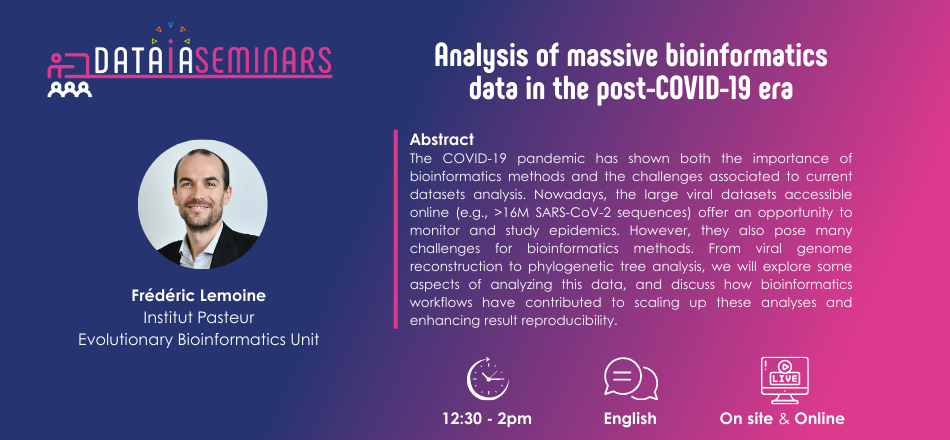
Title
"Analysis of massive bioinformatics data in the post-COVID-19 era"
Abstract
The COVID-19 pandemic has shown both the importance of bioinformatics methods and the challenges associated to current datasets analysis. Nowadays, the large viral datasets accessible online (e.g., >16M SARS-CoV-2 sequences) offer an opportunity to monitor and study epidemics. However, they also pose many challenges for bioinformatics methods. From viral genome reconstruction to phylogenetic tree analysis, we will explore some aspects of analyzing this data, and discuss how bioinformatics workflows have contributed to scaling up these analyses and enhancing result reproducibility.
Biography
After a master's degree in bioinformatics and biostatistics, Frédéric Lemoine completed a PhD in computer science and bioinformatics at Université Paris-Sud (now Université Paris-Saclay), where he worked on the integration and analysis of comparative genomics data. After a postdoc in Lausanne, Switzerland, where he worked on small RNA sequencing data, he joined GenoSplice where he was responsible for the development of bioinformatics projects related to next-generation sequencing.
In 2015, he joined the Institut Pasteur, to work in the Evolutionary Bioinformatics Unit, where he is involved in the development of new tools and algorithms aimed at coping with the growing amount of sequencing data.
- The seminar will take place on Thursday, June 6, 2024, from 12:30 to 2:00 pm at CentraleSupélec, amphithéâtre e.068 (Bouygues building) in Gif s/Yvette.
- It will also be broadcast by videoconference (link coming soon).
Don't miss the announcement of a new DATAIA seminar!
Subscribe to our seminar mailing list by clicking here.






